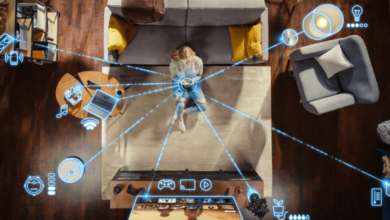The Intersection of Health and Technology: Advancements in Medical Tech

The intersection of health and technology has ushered in a new era of medical advancements. Wearable devices, artificial intelligence, and telemedicine are transforming healthcare delivery. These innovations not only enhance patient monitoring and diagnostics but also improve access to care. As these technologies evolve, they raise important questions about their implications for patient autonomy and healthcare systems. What challenges and opportunities lie ahead as this integration deepens?
Wearable Technology: Revolutionizing Health Monitoring
Wearable technology has emerged as a transformative force in health monitoring. Devices like smartwatches and fitness trackers empower individuals to track vital signs, activity levels, and overall wellness in real-time.
This accessibility fosters a sense of autonomy, enabling users to make informed health decisions. As people embrace these innovations, they reclaim control over their health journeys, promoting a lifestyle rooted in personal freedom and self-awareness.
Artificial Intelligence in Diagnostics and Treatment
Advancements in technology have not only enhanced personal health monitoring through wearables but also revolutionized the fields of diagnostics and treatment.
Artificial intelligence (AI) plays a pivotal role, enabling faster and more accurate disease detection, personalizing treatment plans, and predicting patient outcomes.
Telemedicine: Expanding Access to Care
Telemedicine has transformed the healthcare landscape, offering millions of patients greater access to medical services than ever before.
By eliminating geographical barriers, it empowers individuals to seek care from the comfort of their homes.
This revolutionary approach fosters autonomy, allowing patients to connect with healthcare professionals on their terms, ultimately enhancing their ability to make informed decisions about their health and well-being.
Data Analytics: Enhancing Patient Outcomes and Operational Efficiency
Harnessing the power of data analytics, healthcare organizations are revolutionizing patient care and operational processes.
By analyzing patient data, providers can identify trends, predict outcomes, and tailor treatments, leading to improved health results.
Additionally, operational efficiency is enhanced through streamlined workflows and resource management.
This data-driven approach empowers patients and healthcare professionals alike, fostering a more liberated and effective healthcare environment.
Also read: The Internet of Things: How Connected Devices Are Shaping Our Lives
Conclusion
The intersection of health and technology heralds a new era in healthcare, where wearable devices empower personal health monitoring, artificial intelligence enhances diagnostic precision, telemedicine broadens access to care, and data analytics improves treatment outcomes. Together, these advancements not only foster patient autonomy but also create a more efficient healthcare system. As technology continues to evolve, it promises to further transform the landscape of medicine, ensuring a healthier society for all.




